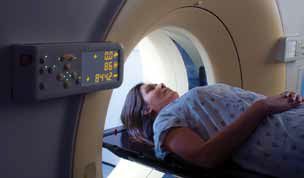Article
New MRI Technique Shows Promise in Early Parkinson's Detection
Author(s):
Resting-state functional MRI, a new MRI approach, detects early stage Parkinson's disease with 85% accuracy, according to a new study.

Resting-state functional MRI, a new MRI approach, detects early stage Parkinson’s disease with 85% accuracy, according to a new study published online in Neurology on June 11, 2014. The new test focuses on scanning the basal ganglia, the area of the brain associated with Parkinson’s disease.
According to senior researcher Clare Mackay, of Oxford University, the new test’s potential ability for early detection could improve the lives of many patients with Parkinson’s disease because conventional MRI cannot detect early signs of the disease.
“By the time symptoms of Parkinson’s are obvious, a lot of damage has already taken place in the brain,” she said, and to reduce the disease’s impact, new ways must be found to protect the brain before significant damage is done. “We must have good tools to identify people as early as possible in the course of the disease.”
While PET scans have shown promise in early detection of Parkinson’s disease, PET involves a dose of radiation and is very expensive, whereas MRI is not expensive and does not use radiation.



